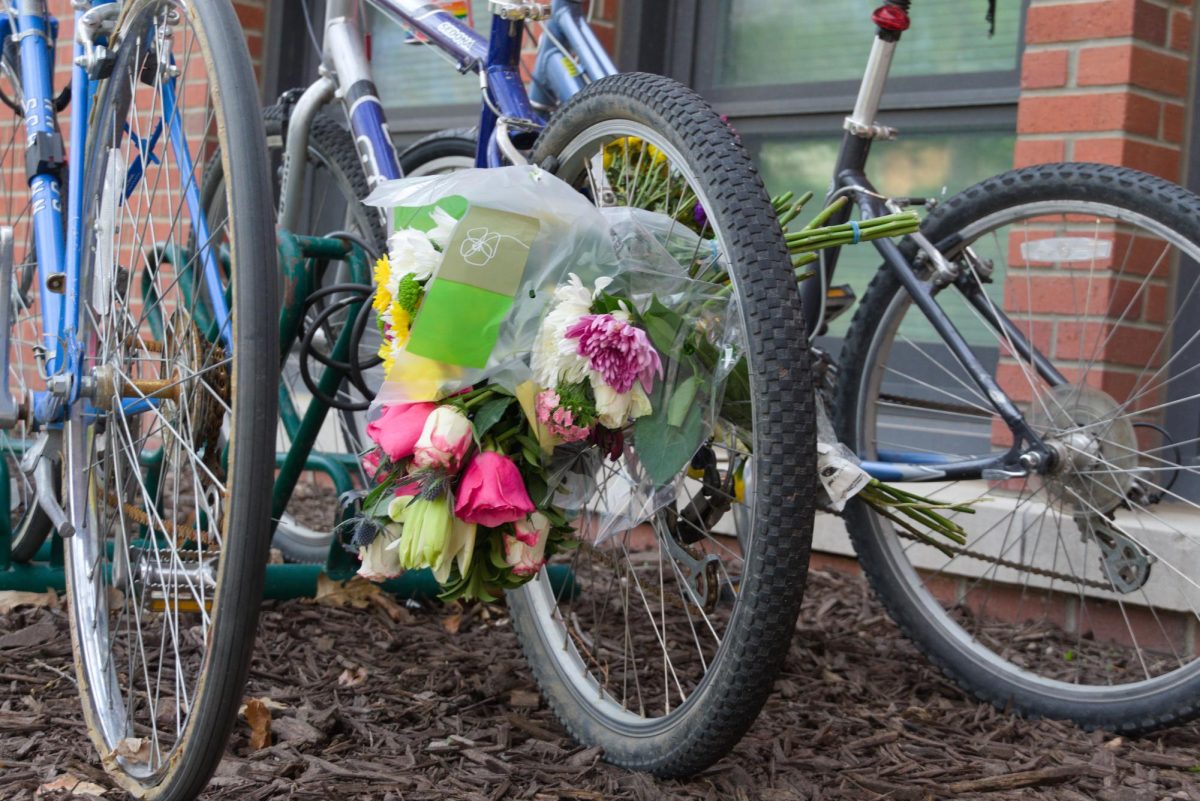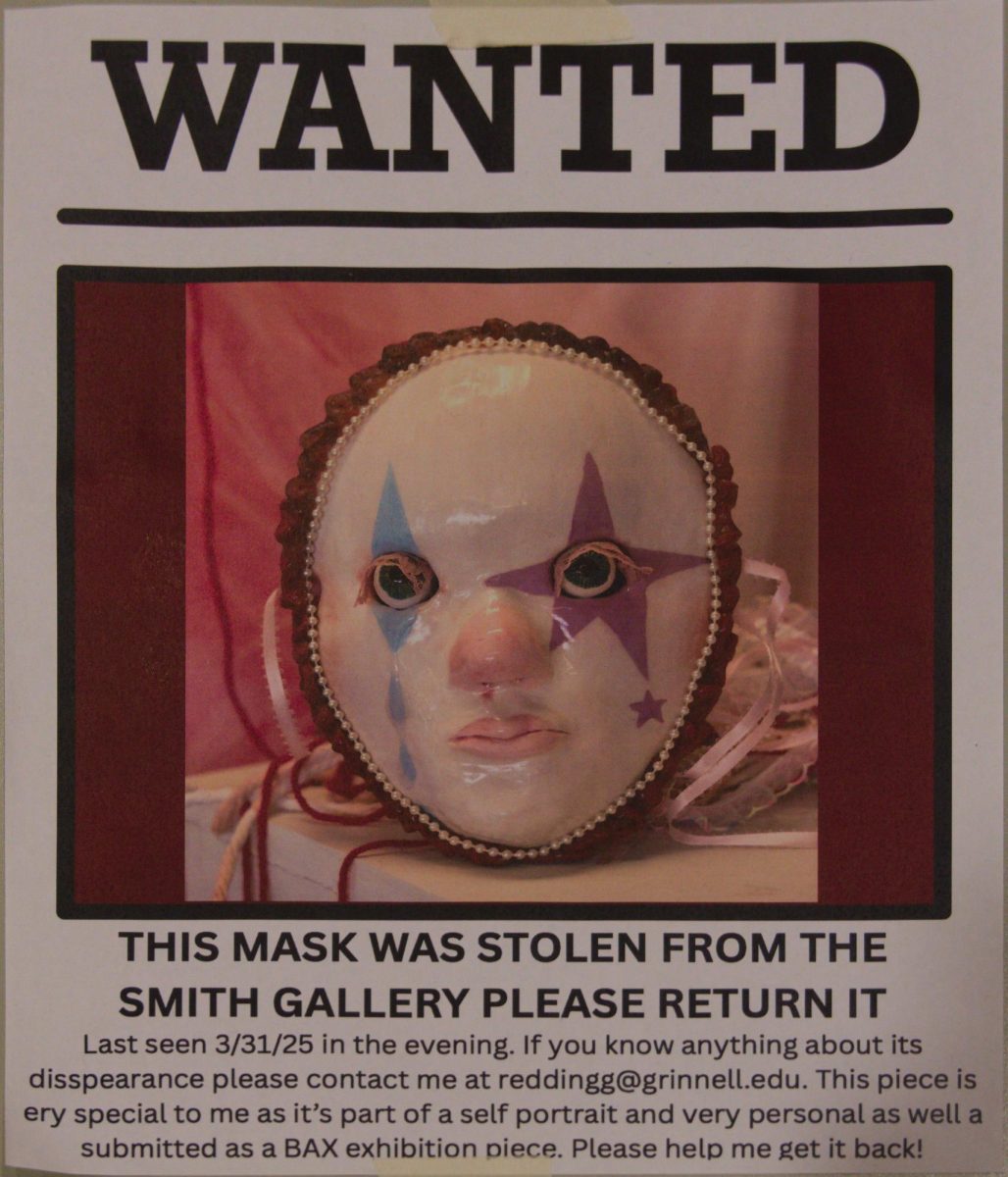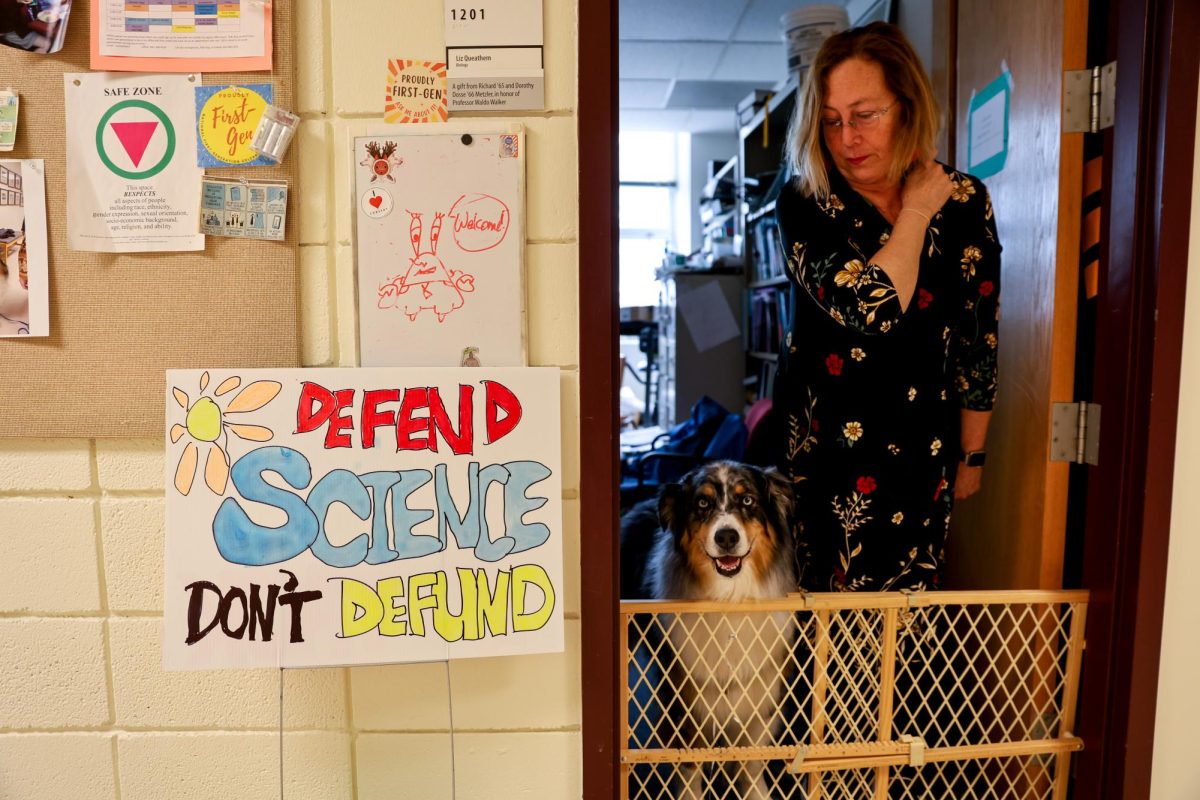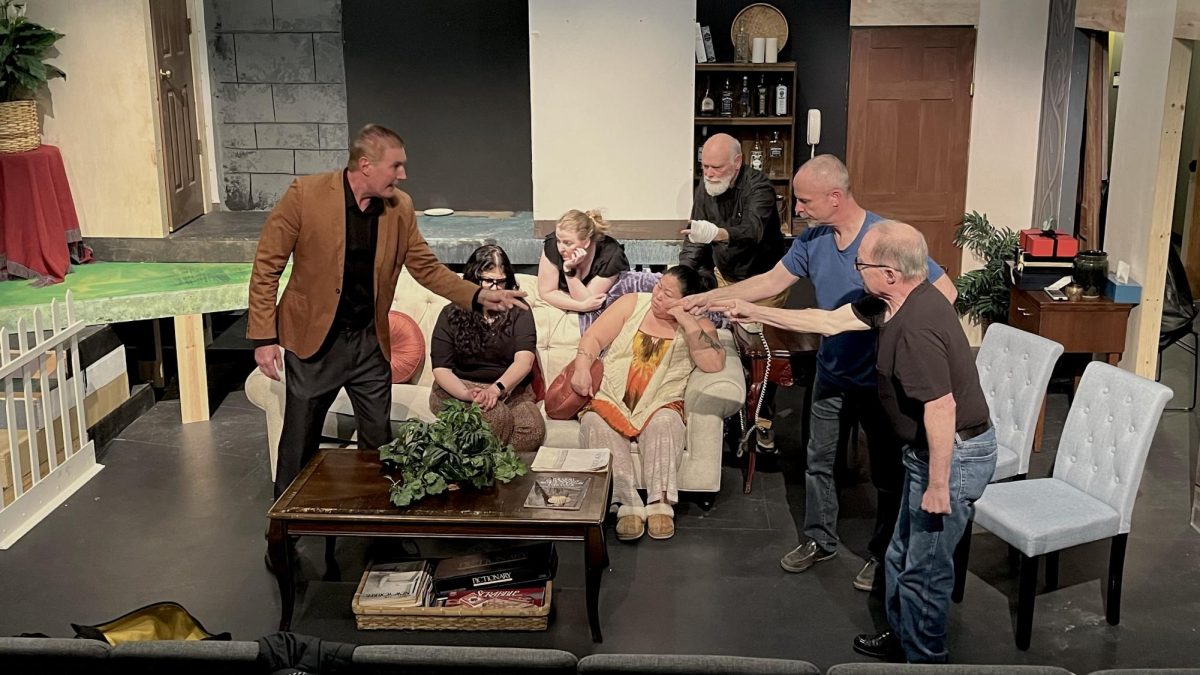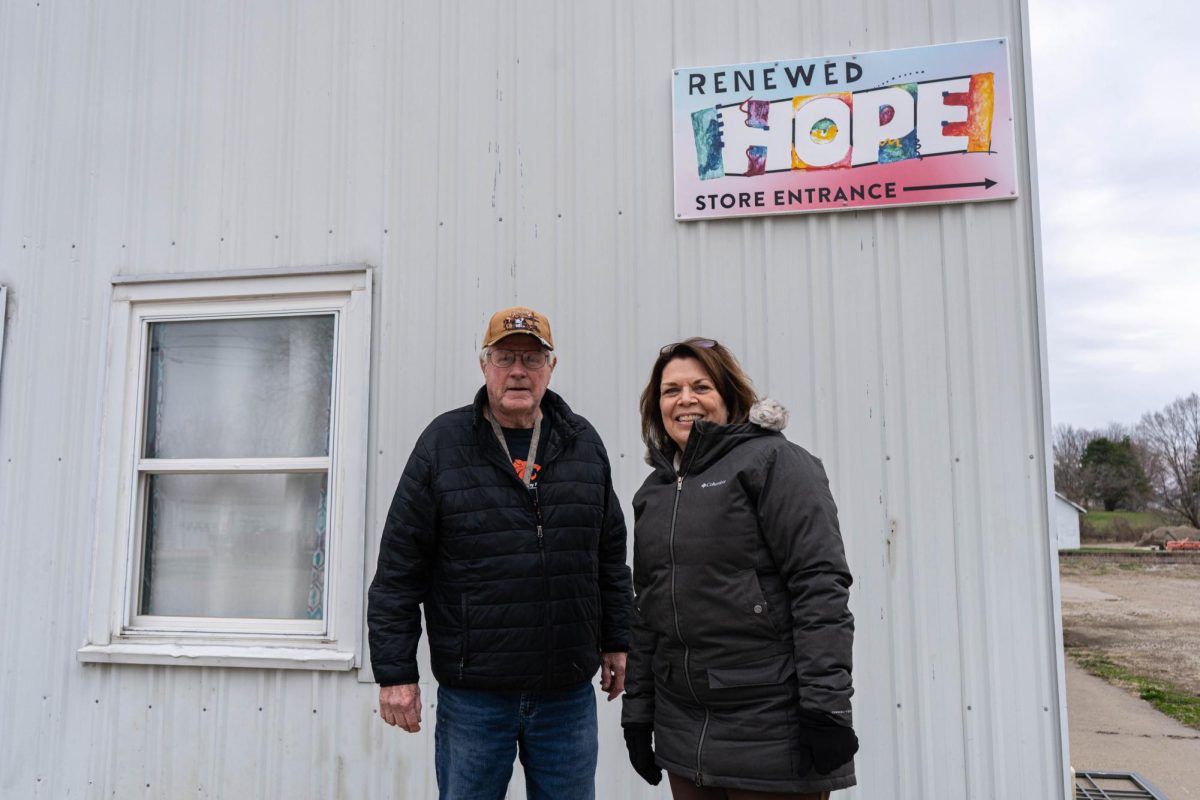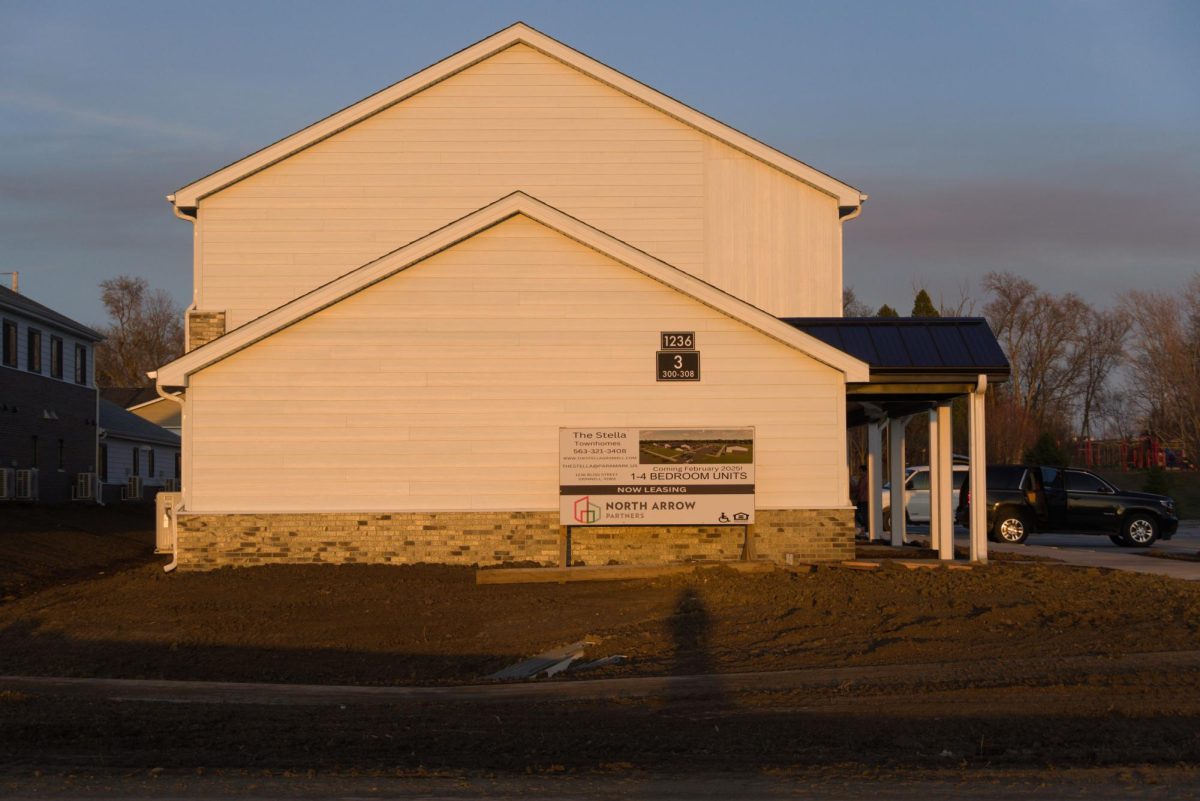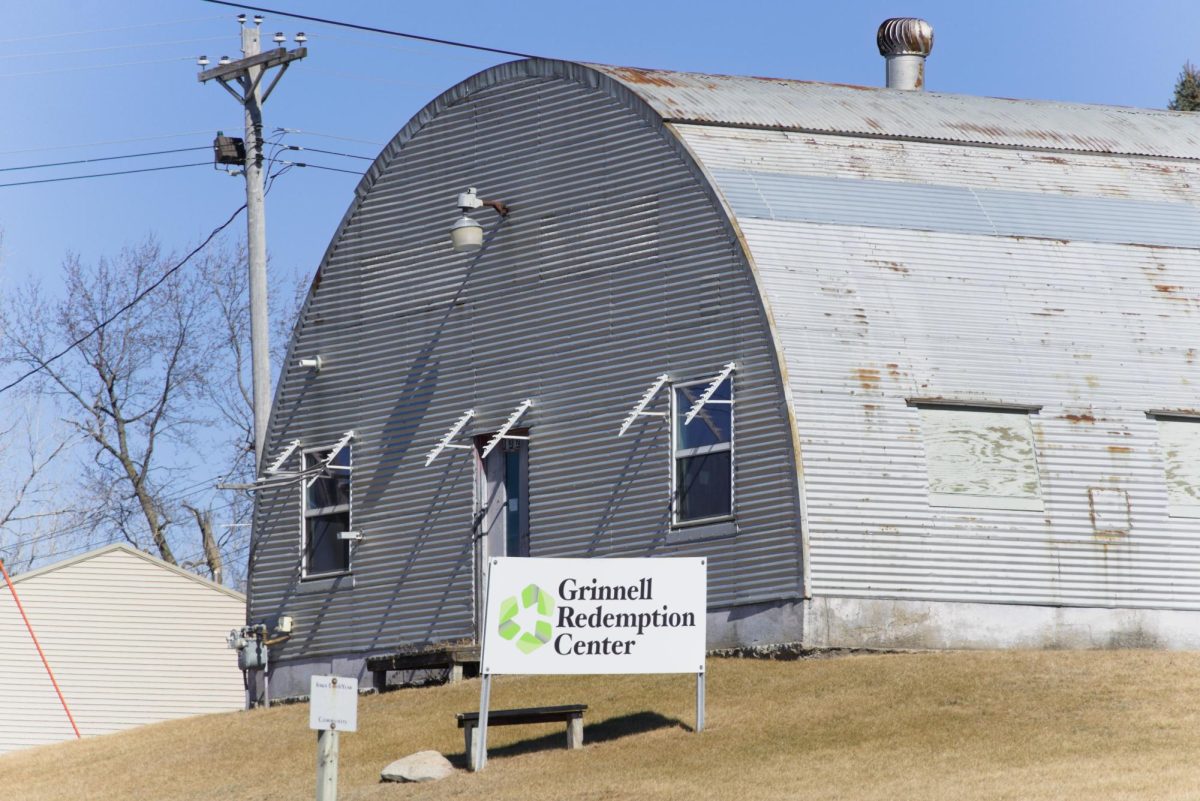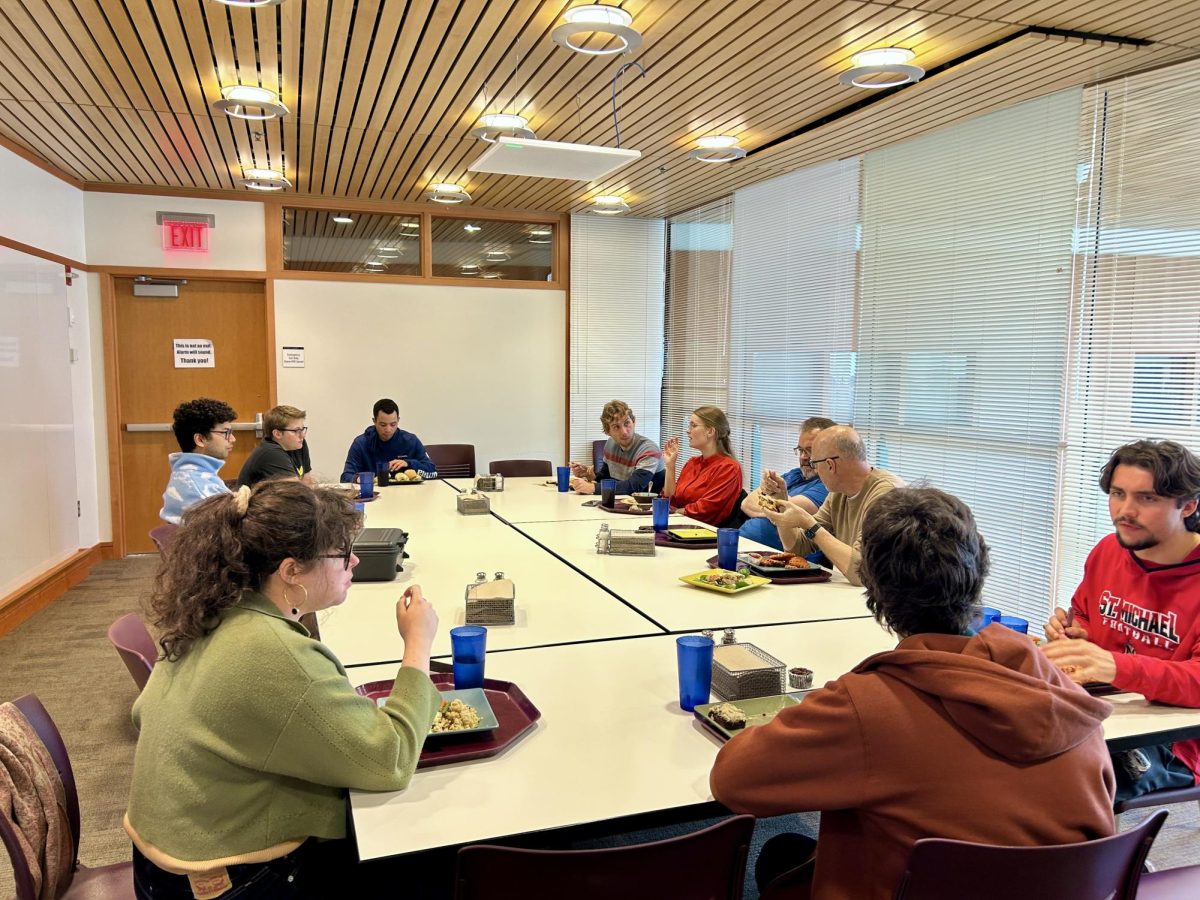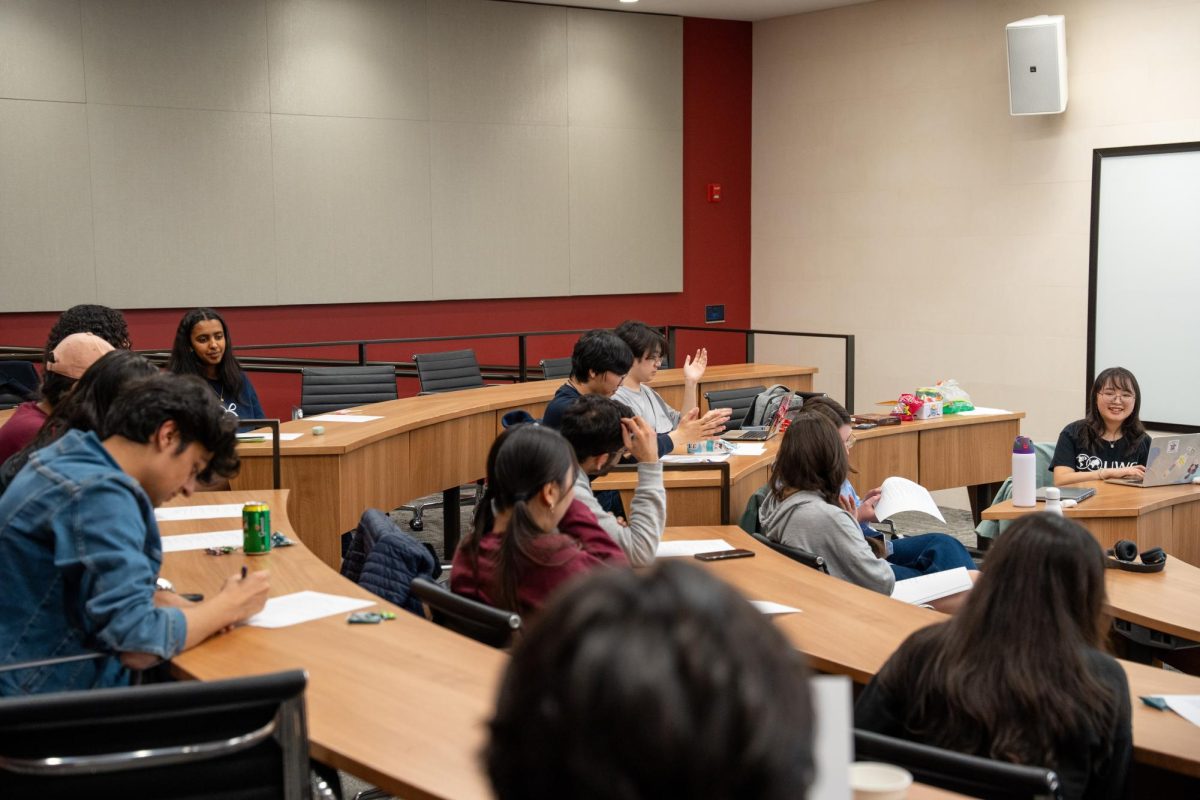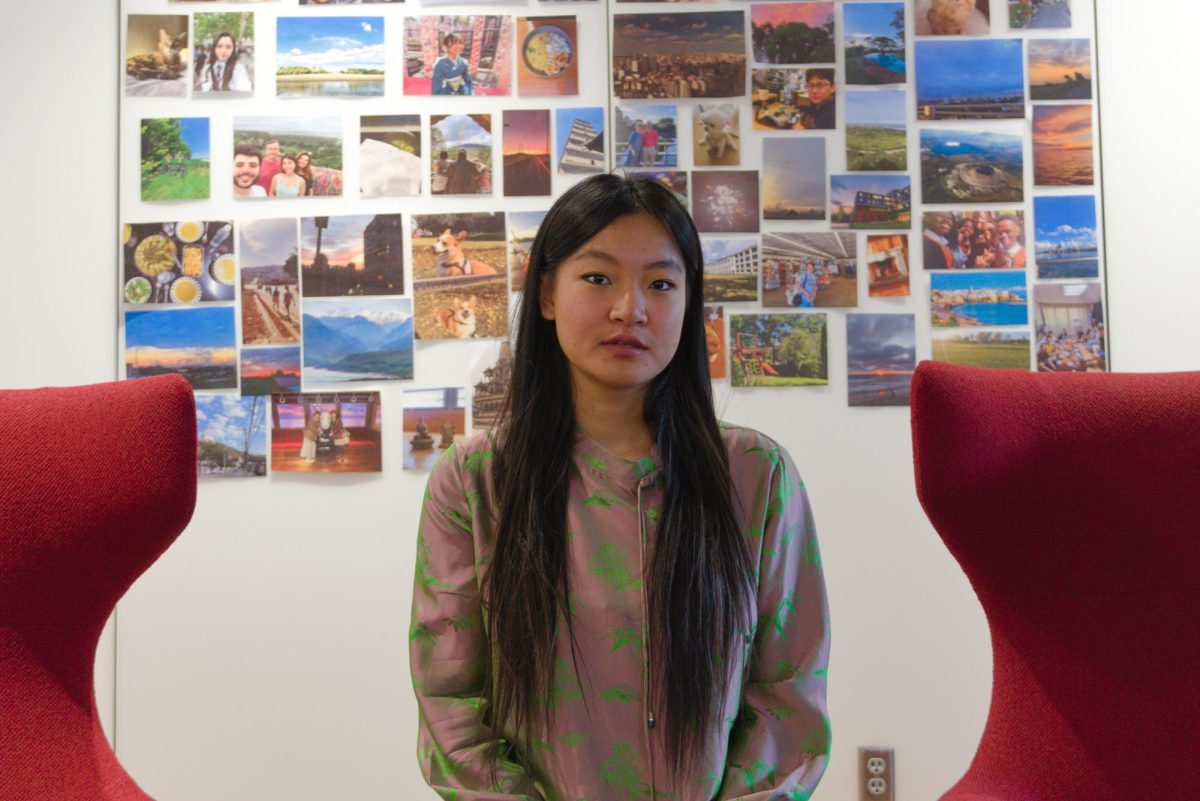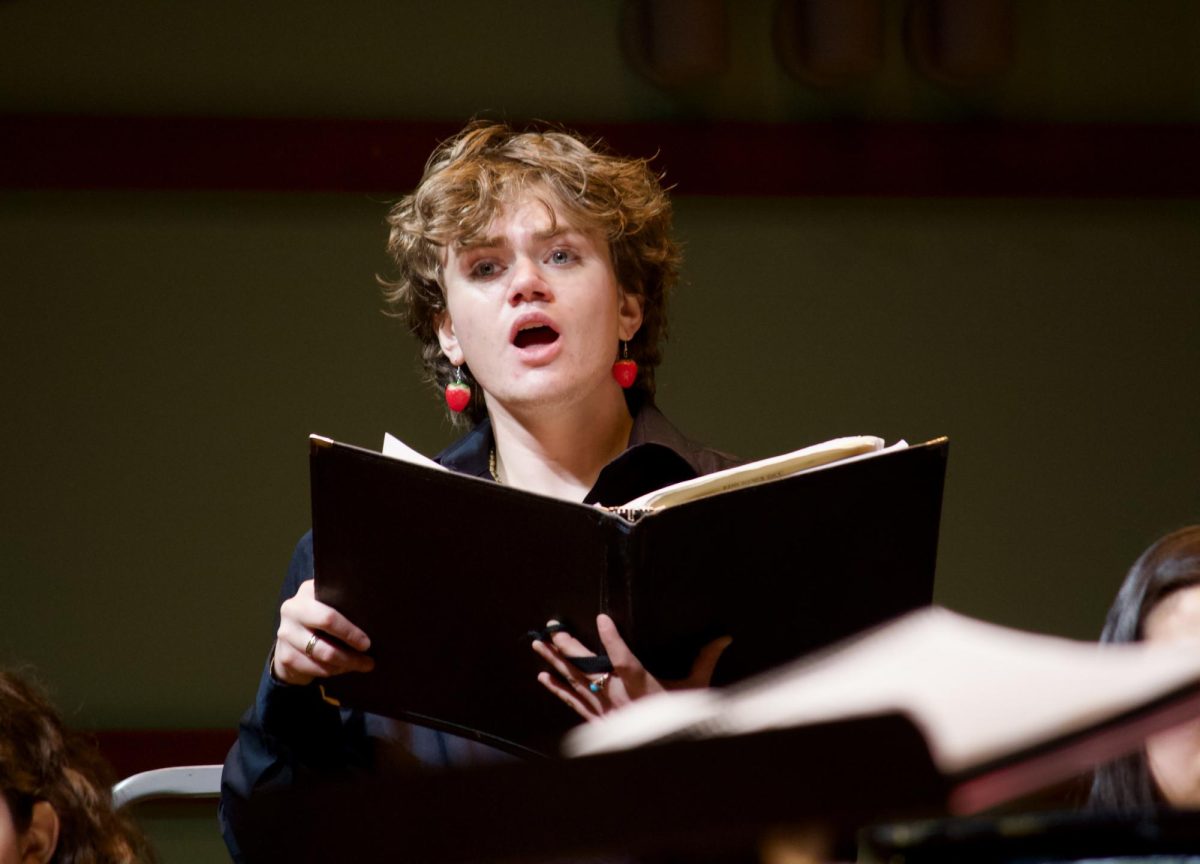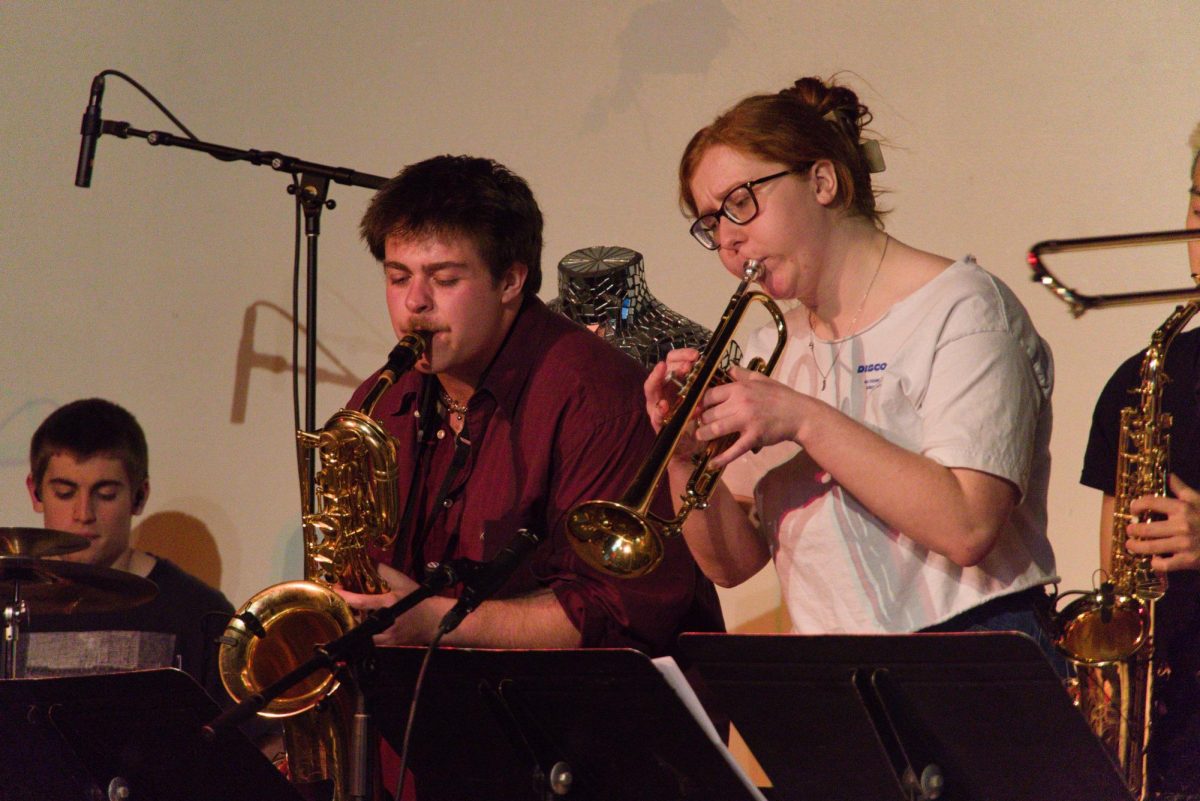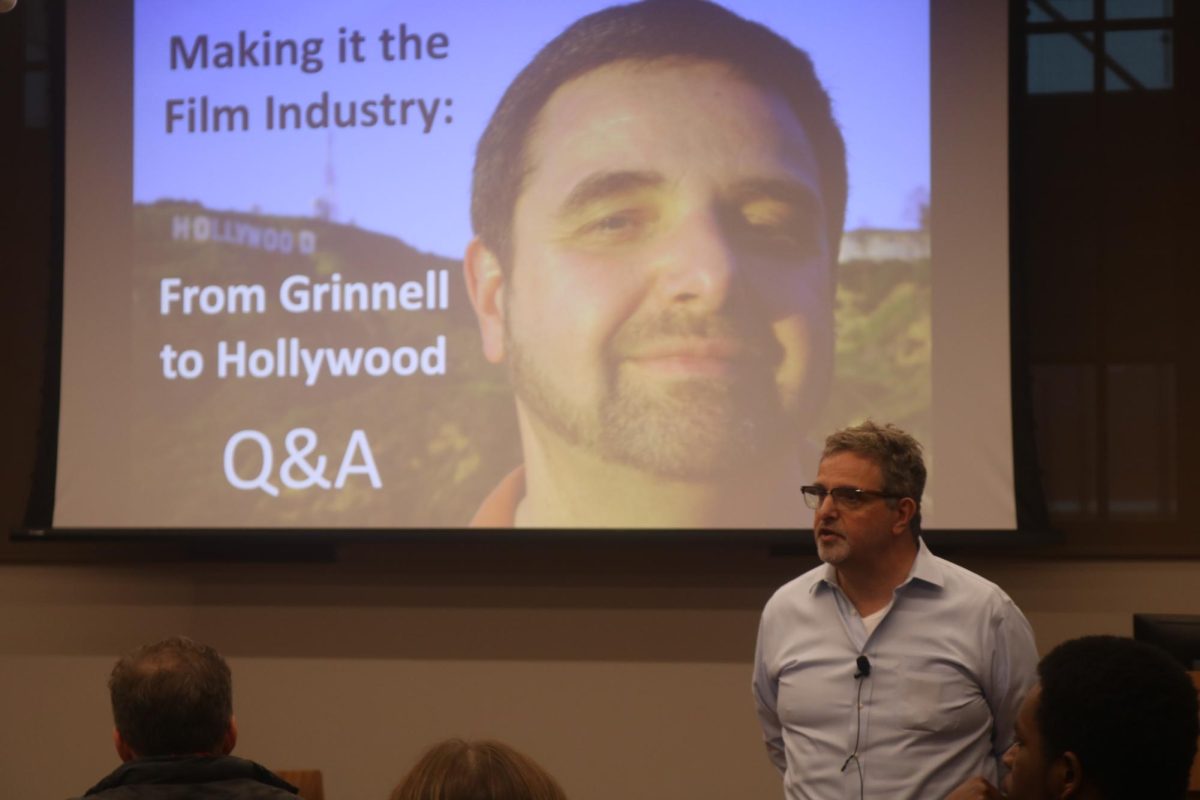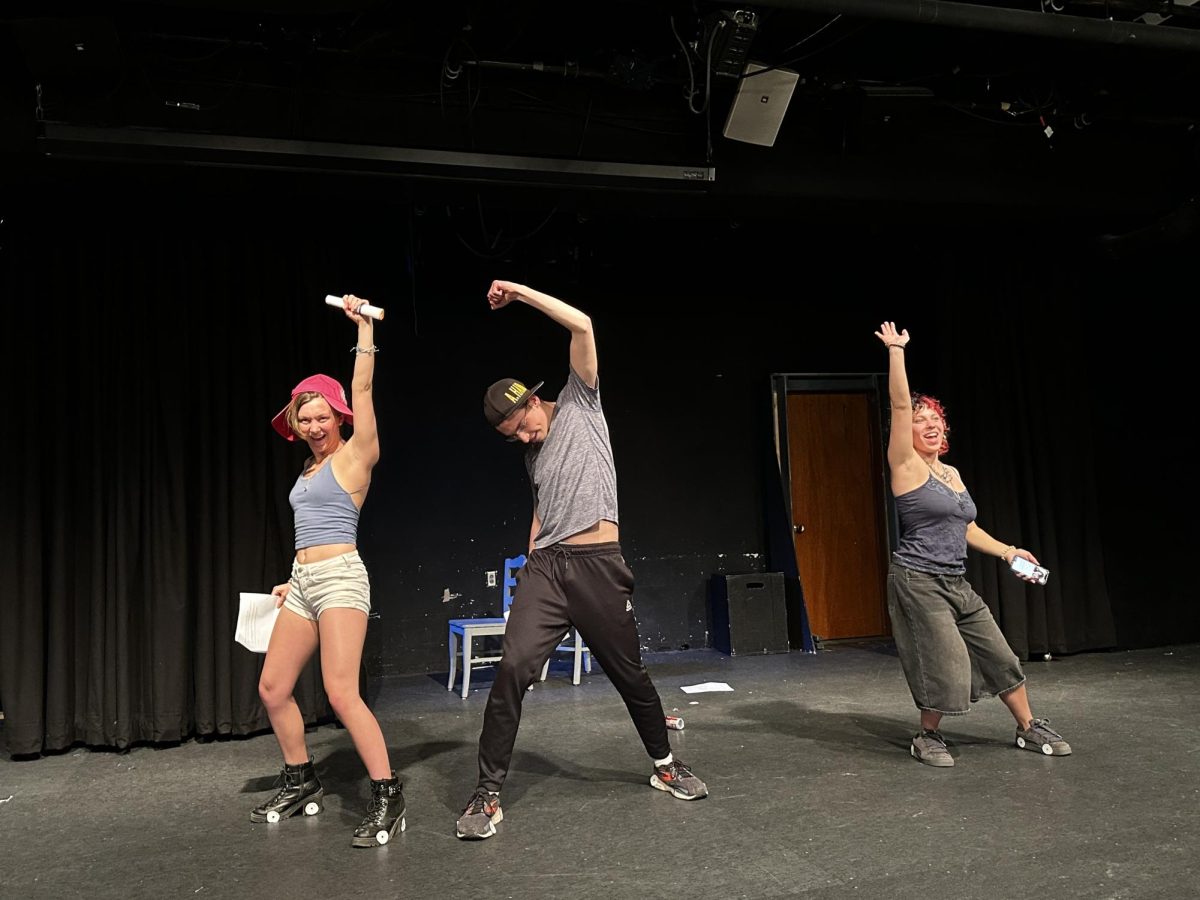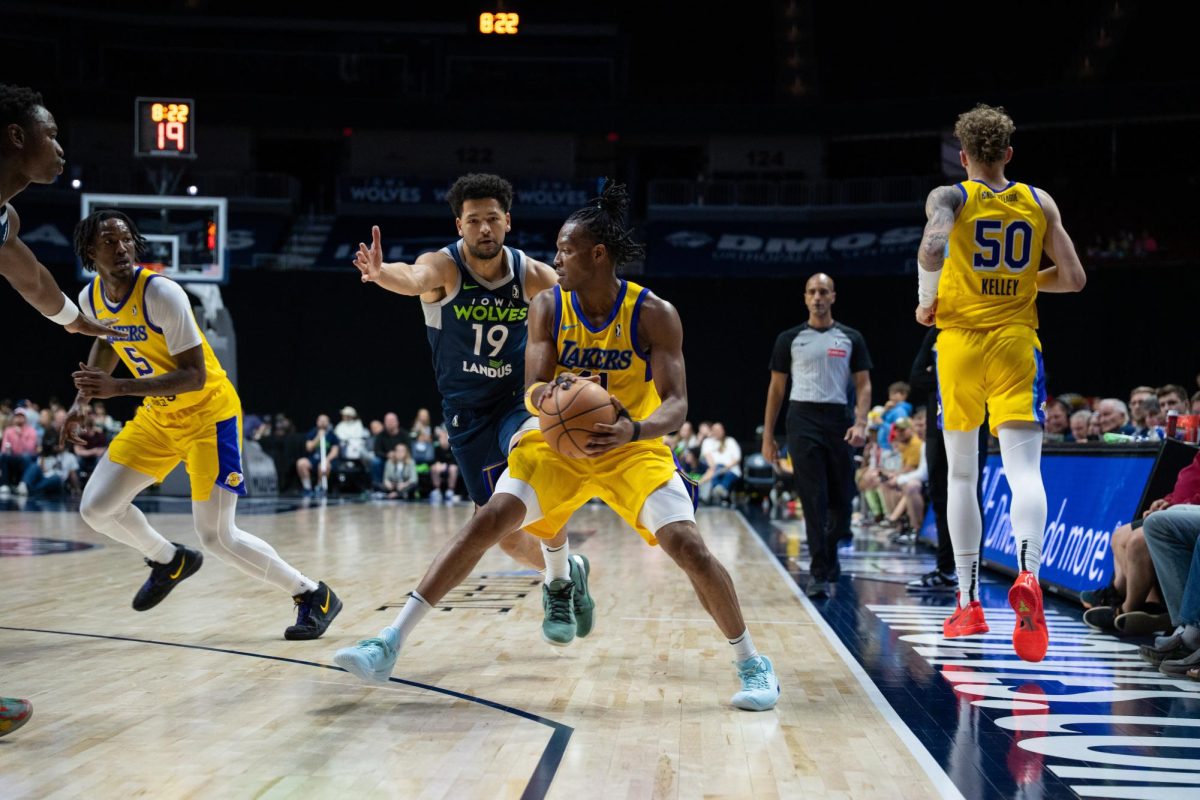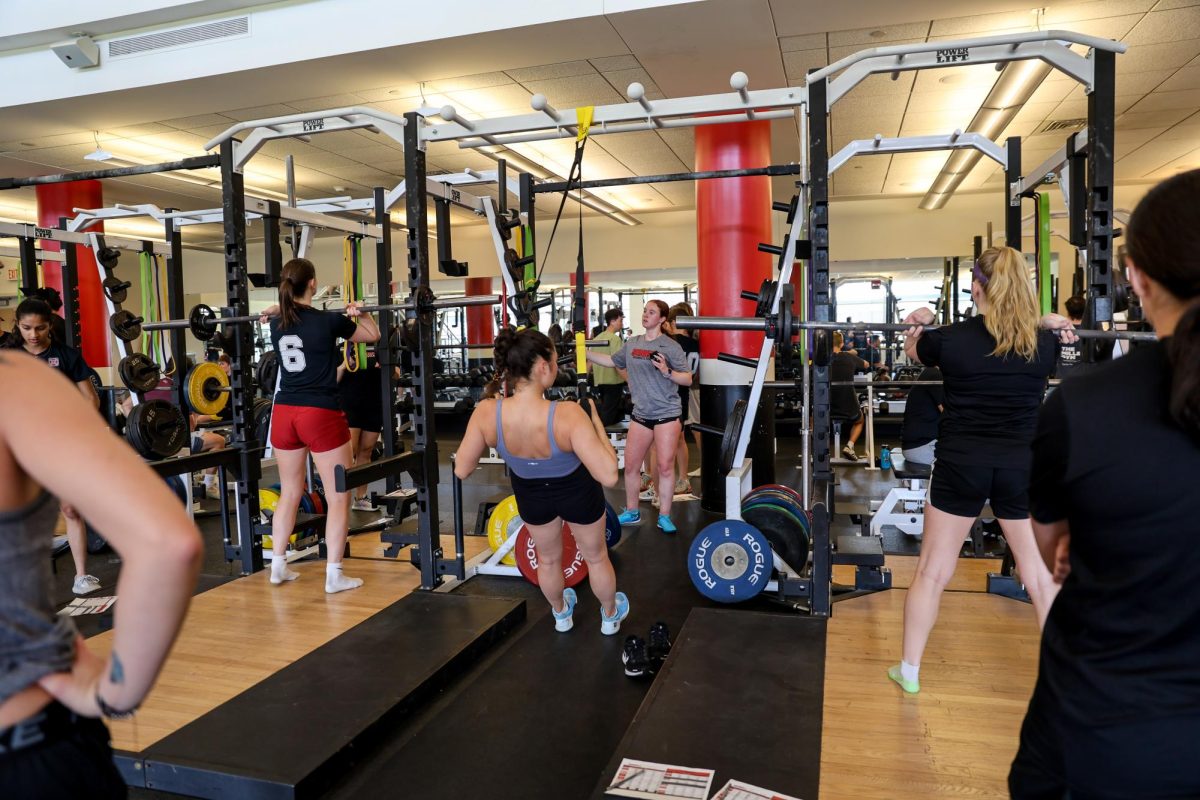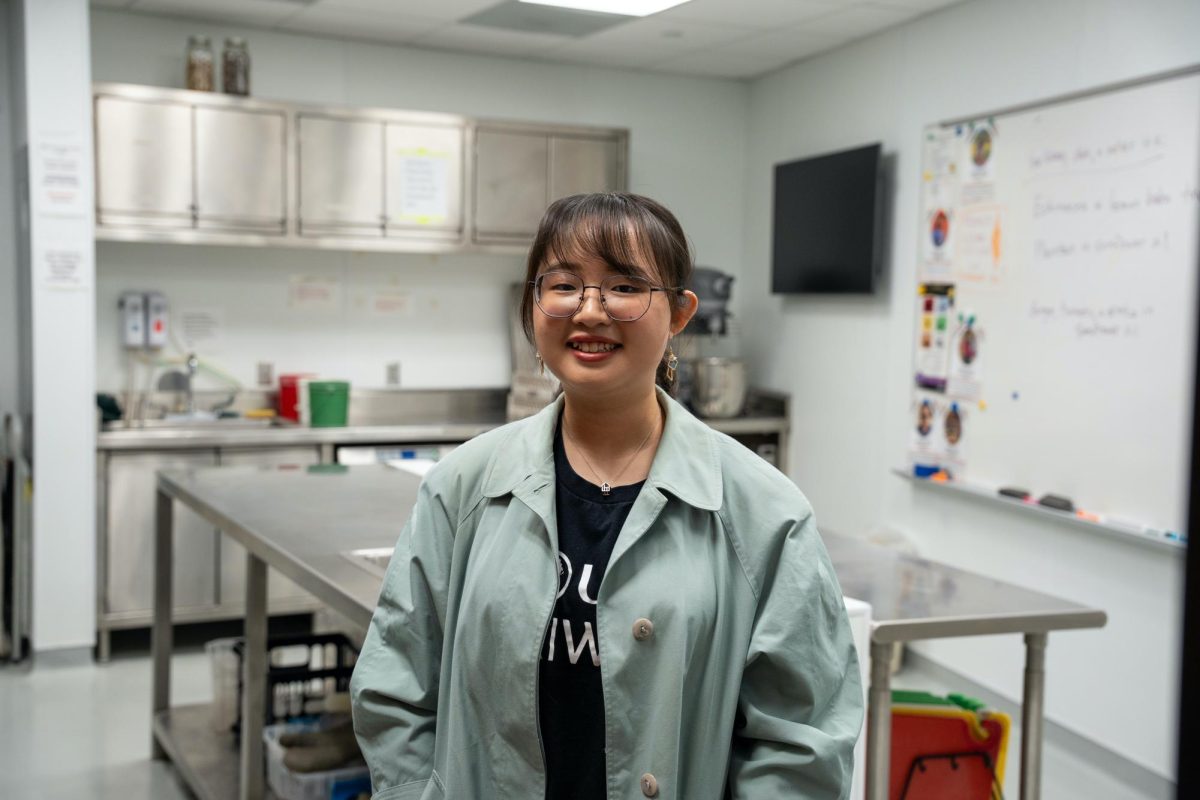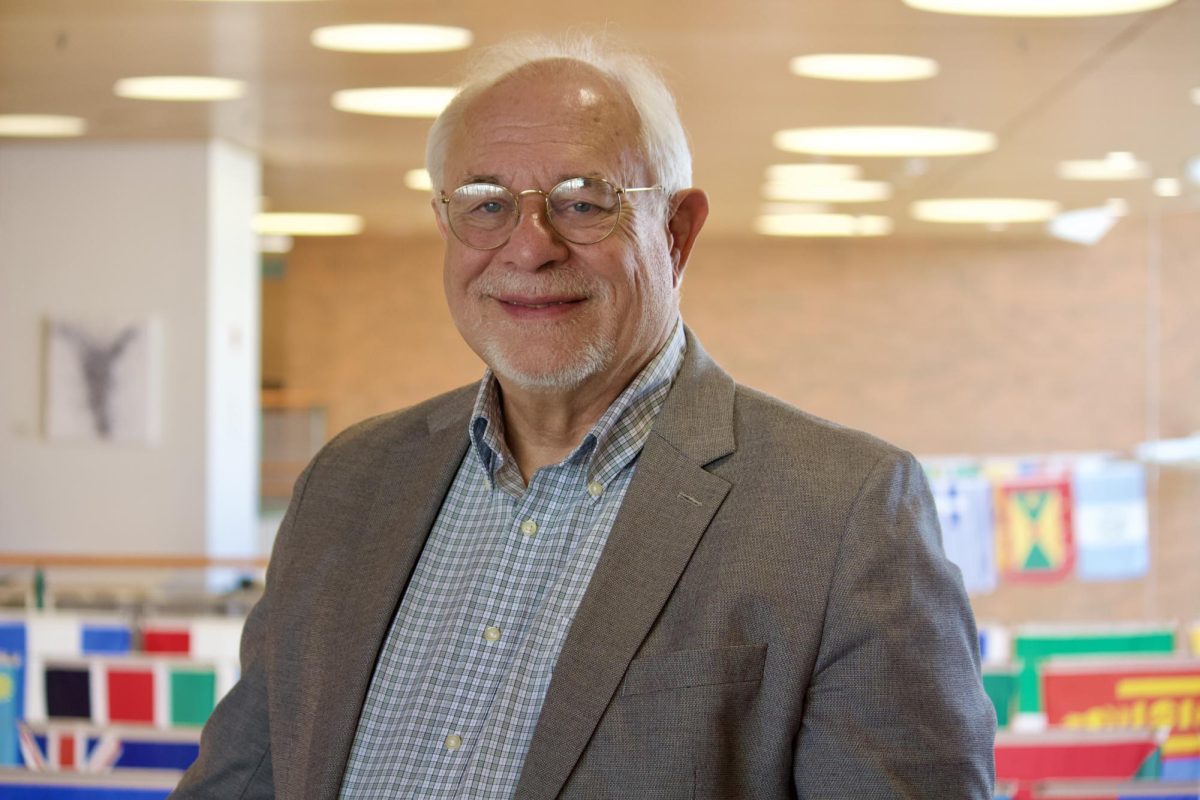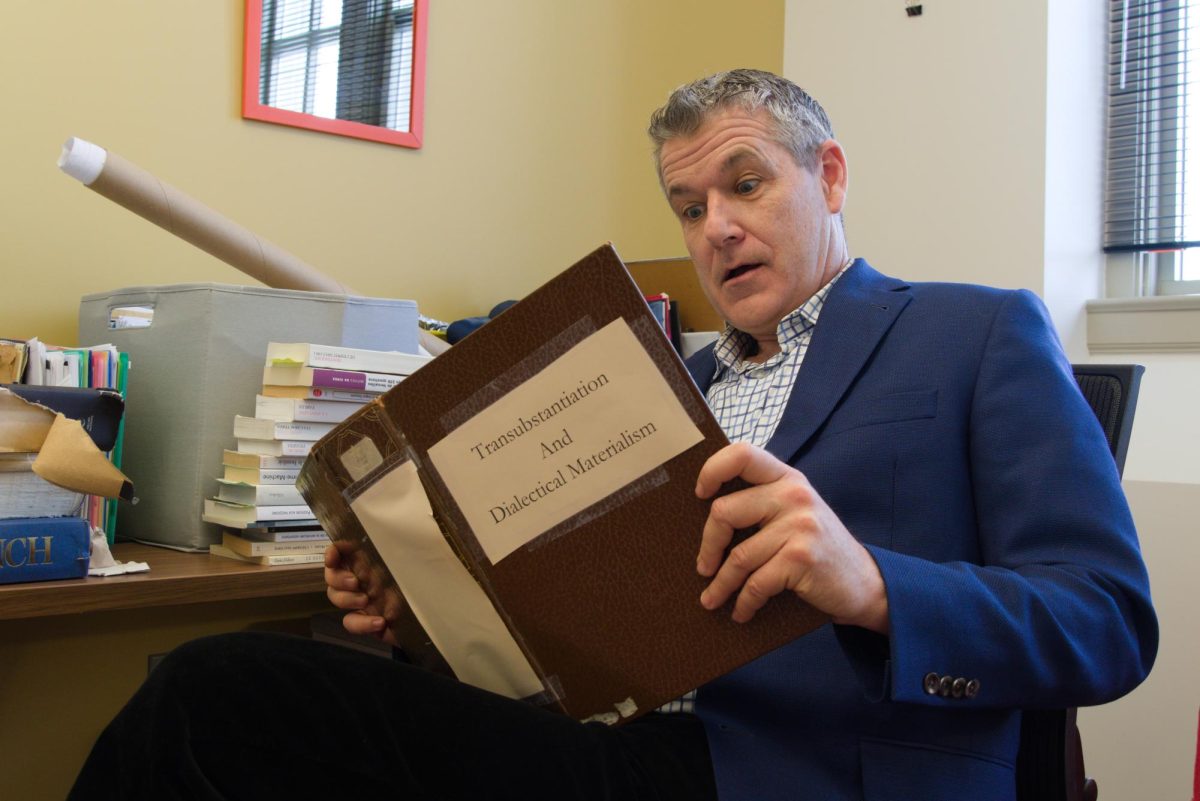If you pay attention to any news coverage, you know of the constant criticism, made mainly by right-leaning groups and individuals, toward news organizations that they want to harm. But student-run newspapers at colleges across the country are under extraordinary pressure too, especially in this politically charged moment of open season on higher education.
Penn State University, a publicly supported institution that operates as a private college, removed the respected Daily Collegian’s news racks last fall after the paper sold spots to the Kamala Harris campaign for their ads. In Vermont, Norwich University, a private military school, suspended The Guidon for the entire fall 2024 semester for what a lawsuit by the paper’s adviser says was retribution for negative coverage about the school. The negative coverage included an alleged sexual assault on campus in April 2024.
The Scarlet & Black journalists are lucky in many regards. The paper’s mission and students are supported by the College president, communications and marketing, and student affairs offices that they deal with most often. The paper has a good relationship with the student government now. More people view the opinions page this school year as a place where they can share ideas.
It was only a few years ago that an unhappy Grinnell College Student Government Association officer became upset with The S&B for identifying her in coverage of a public rally, along with other grievances, and threw a bunch of papers outside into the rain. The politics in the Grinnell incident was local, not one of the complaints lobbed at national news organizations, showing that hostility knows no political boundaries.
This is a good time to remember The S&B’s role on campus and how its journalists do their work and make decisions. The S&B is a vital part of Grinnell College, telling its readers what they want to know, but, as important, what they need to know in order to fulfill their experiences here in Iowa. Its reporters must learn information — sometimes more difficult and contradictory than you might think — and then test, double-check and confirm the truth in a short period of time.
This is why you might hear a campus rumor but do not see an S&B story until its reporters have fact-checked the rumor. It is why you might be asked to confirm information if you encounter a reporter.
It is why you might see a story that makes you uncomfortable, too, because journalism requires reporting events, trends, issues, people and policies that threaten or affect your norm, or notion of what is normal. While the grand majority of them will not become journalists, The S&B staffers are doing journalism at Grinnell College, and news is uncomfortable sometimes.
News last fall of an assault on a gay, Black student that allegedly included homophobic slurs was uncomfortable for those involved. They didn’t ask for the attention the story forced on them, but the story needed to be reported because of the perceived threat of what those on campus call the norm in public safety.
A December story about mental healthcare in Iowa, specifically in Poweshiek County, and another story that same month about transgender people fighting Iowa legislation that harms them is another example of The S&B reporting in-depth for its audience. This kind of reporting earned The S&B its second straight Iowa College Media Association (ICMA) News & Media Organization of the Year award in February.
The S&B staff has professional training, through which they show how dedicated they are. I hold Monday afternoon sessions and coach during a few Thursday night layouts in order to explain journalism principles and ethics. The sessions can include criticisms, which always seem to bring more attention than all of the good work. Such is the curse of being in a business in which 99 percent accuracy feels like failure because of that damned 1 percent that keeps us up at night.
For example, a March story about Grinnell students joining Planned Parenthood Lobby Day at the Iowa Statehouse used student descriptions of what Rep. Dean Fisher told them but did not give Fisher the chance to have his voice in the article. Journalism ethics call for fairness and allowing someone who is criticized, as Fisher was at times by the students, to respond. Readers may judge for themselves how The S&B does with stories like these by reading the paper’s ethics policy online.
I hope The S&B not only reflects the learning that professors and daily experiences living in Grinnell give these student journalists because we are in an era when pressure is mounting on private colleges to adhere to political demands from Des Moines and Washington, D.C. A strong college media can shed light on these actions.
While public universities that receive public money are in the crosshairs, private colleges and universities also have targets on their backs, placed there by Donald Trump‘s administration but also by the Iowa legislature. Trans people at these schools are under government attack because they want to be who they are. Having diversity, equity and inclusion has become taboo, as if uniformity, inequity and exclusion are the shining goal. Higher education is seen as indoctrination because you have to learn parts of history you’d rather ignore. And, government has ways of punishing these perceived indiscretions.
Threats to withhold funding for what is called race discrimination against the white majority have places like Columbia University giving in to the Trump administration on identifying demonstrators the administration wants to punish, taking stronger oversight of student groups and hiring 36 special campus police to make arrests when necessary — in other words, during protests. Penn has had time in the spotlight, and the administration now has Harvard in its sights.
At no time in history has a college newspaper that can maintain a mission of truth-telling been so important. College newspapers in recent years have exposed out-of-control spending by the former president at the University of Florida, team hazing so bad that the once-respected head football coach at Northwestern University had to resign, the resignation of a Harvard University president who fumbled statements to Congress — and lies former Republican presidential candidate Vivek Ramaswamy made in Grinnell about being accosted by protesters in a hit-and-run car crash.
Yes, that was The S&B.
Lyle Muller is The Scarlet & Black’s professional adviser. He is a retired Iowa journalist and former editor of The Gazette of Cedar Rapids, IowaWatch.org, and PolitiFact Iowa. A two-time former Pulitzer Prize jurist, he is a recipient of the Iowa Newspaper Association’s Distinguished Service Award and Iowa College Media Association’s Eighmey Award.
